2022届高考英语二轮复习:时态语态的用法课件(24张)
文档属性
| 名称 | 2022届高考英语二轮复习:时态语态的用法课件(24张) | 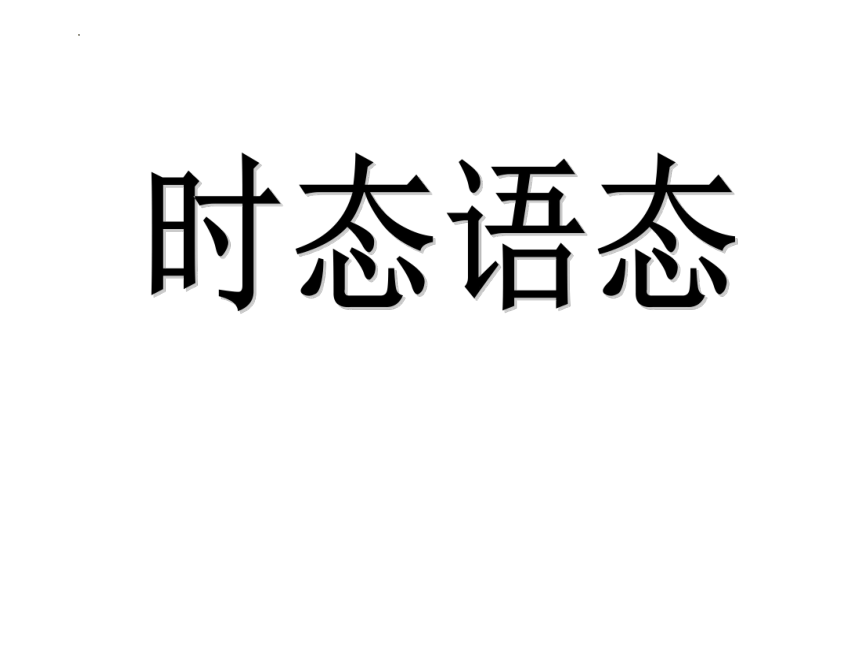 | |
| 格式 | zip | ||
| 文件大小 | 92.1KB | ||
| 资源类型 | 教案 | ||
| 版本资源 | 通用版 | ||
| 科目 | 英语 | ||
| 更新时间 | 2022-05-03 08:46:35 | ||
图片预览

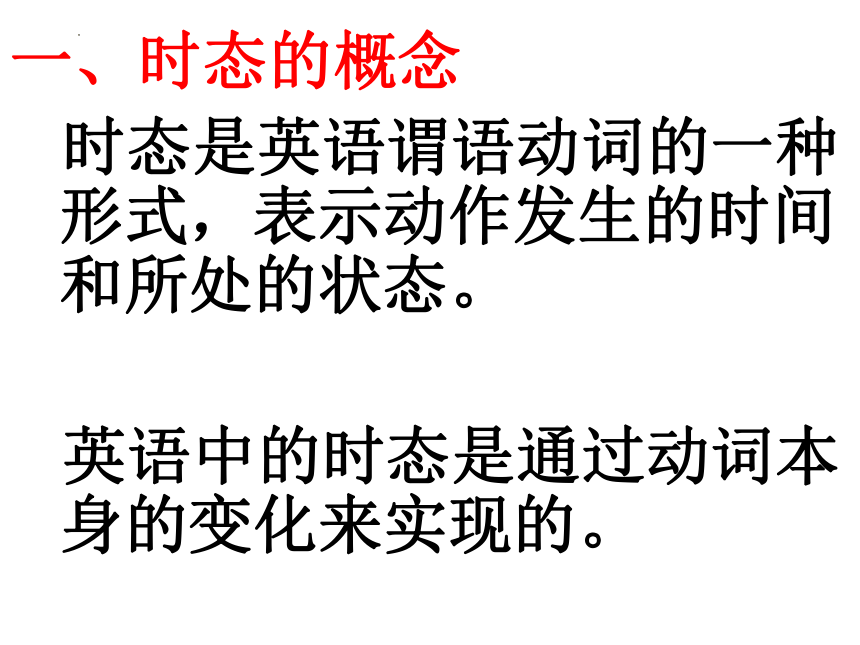
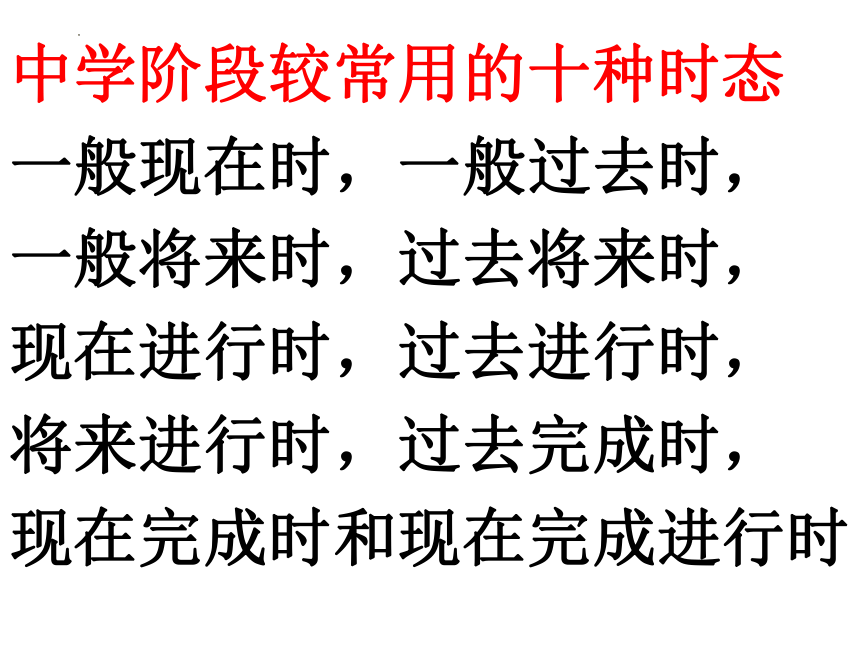
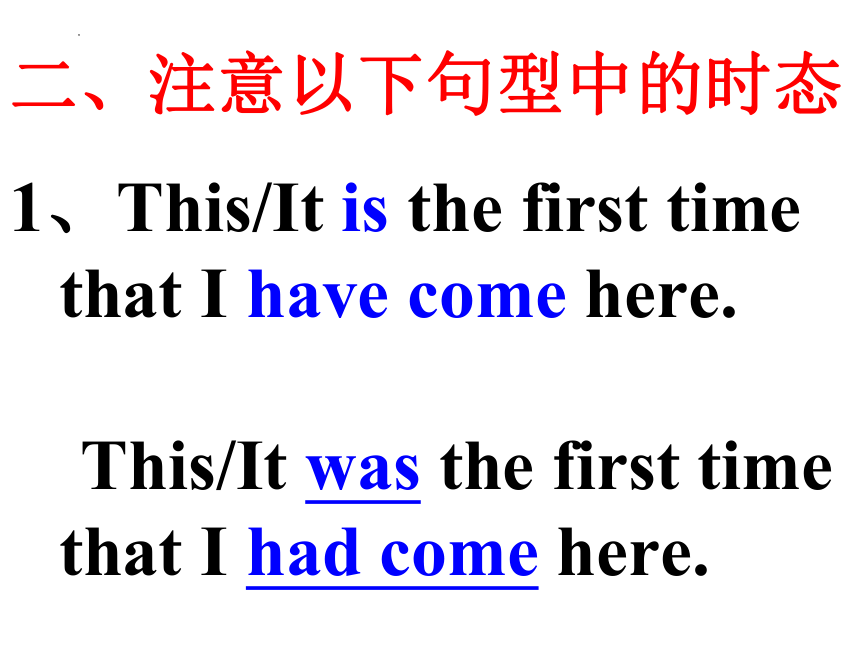
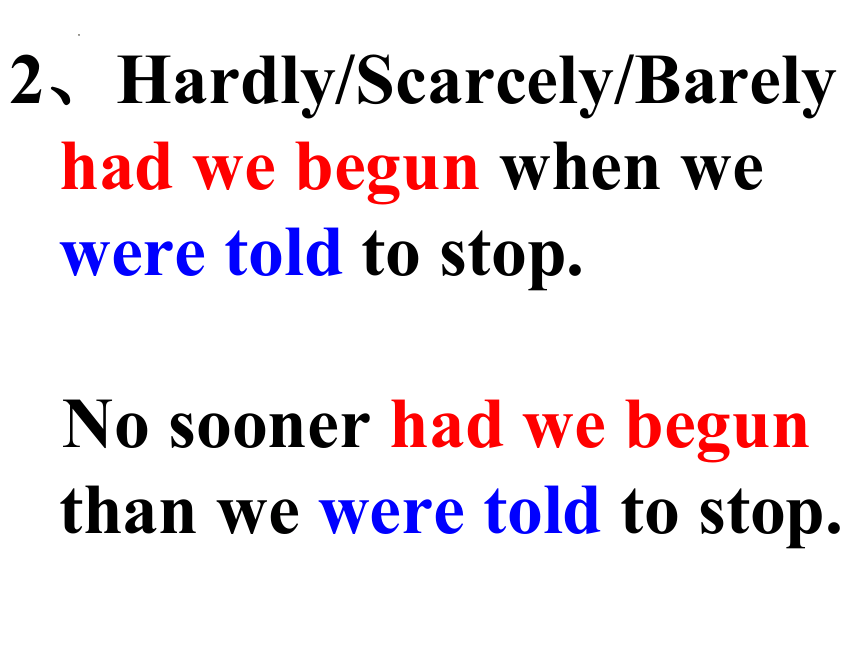
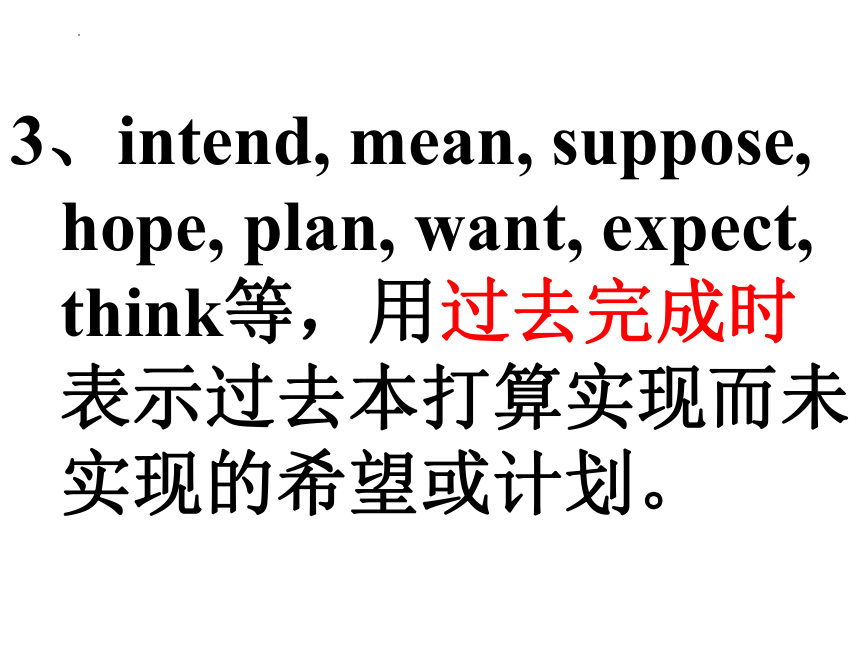
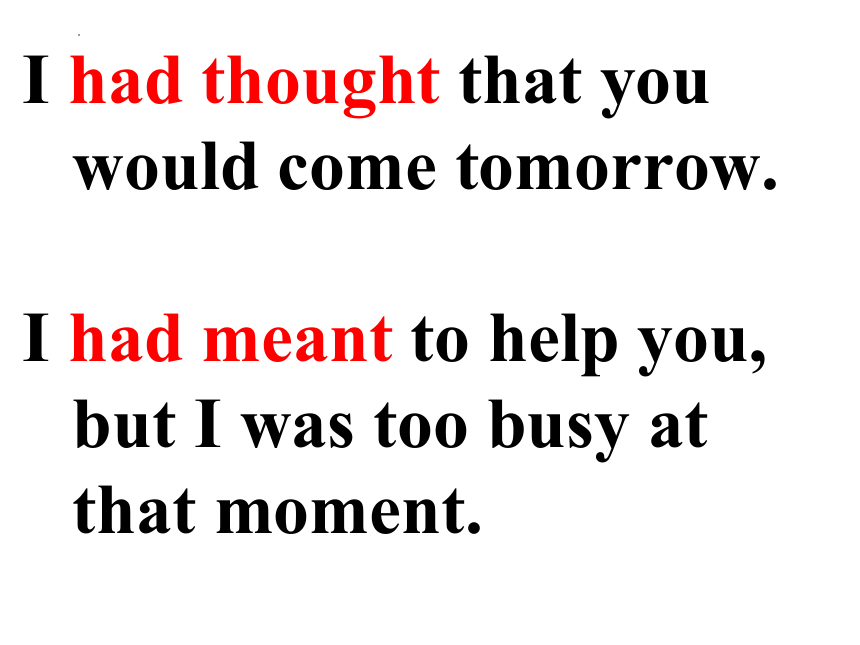
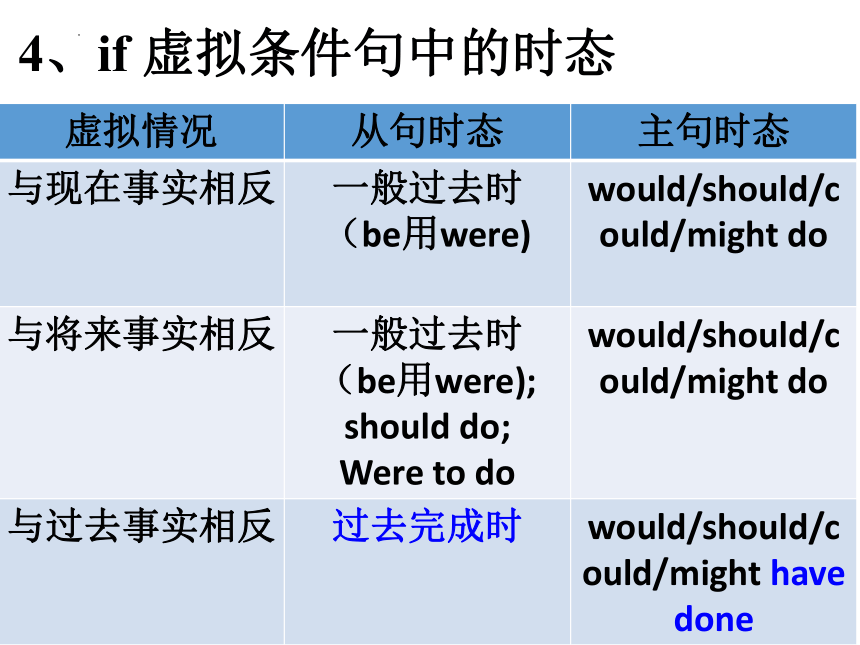
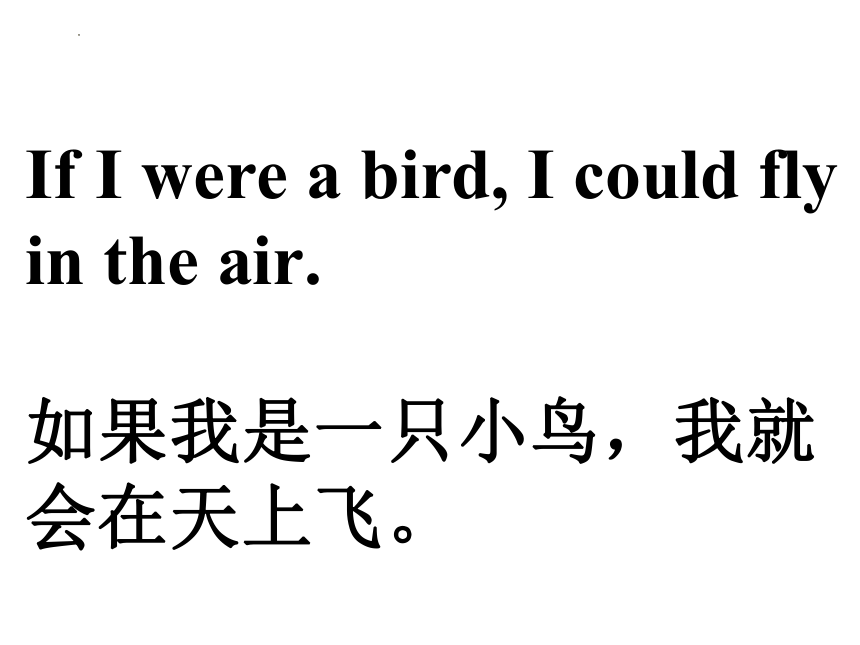
文档简介
(共24张PPT)
时态语态
一、时态的概念
时态是英语谓语动词的一种形式,表示动作发生的时间和所处的状态。
英语中的时态是通过动词本身的变化来实现的。
中学阶段较常用的十种时态
一般现在时,一般过去时,
一般将来时,过去将来时,
现在进行时,过去进行时,
将来进行时,过去完成时,
现在完成时和现在完成进行时
二、注意以下句型中的时态
1、This/It is the first time that I have come here.
This/It was the first time that I had come here.
2、Hardly/Scarcely/Barely had we begun when we were told to stop.
No sooner had we begun than we were told to stop.
3、intend, mean, suppose, hope, plan, want, expect, think等,用过去完成时表示过去本打算实现而未实现的希望或计划。
I had thought that you would come tomorrow.
I had meant to help you, but I was too busy at that moment.
4、if 虚拟条件句中的时态
虚拟情况 从句时态 主句时态
与现在事实相反 一般过去时(be用were) would/should/could/might do
与将来事实相反 一般过去时(be用were); should do; Were to do would/should/could/might do
与过去事实相反 过去完成时 would/should/could/might have done
If I were a bird, I could fly in the air.
如果我是一只小鸟,我就会在天上飞。
If it should rain tomorrow, the race would be put off.
如果明天下雨的话,比赛就会推迟。
If you had arrived earlier that day, you might have met her.
如果那天你早点到的话,你就会遇见她了。
5、would rather引导的宾语从句中的时态
I would rather he were here now.(与现在相反)
I would rather he came tomorrow. (与将来相反)
I would rather you hadn’t made a decision.(与过去相反)
6、wish引导的宾语从句中的时态
I wish he were here now.
I wish he would come here tomorrow.
I wish I had seen him yesterday.
7、It is (about/ high) time that ...
注意that 句中的时态
It is about/ high time that we had a break/ should have a break.
8、if only引起的感叹句中的时态
If only I were you!
If only I hadn’t been there!
“要是……就好了”
三、语态
主动语态 被动语态
They have finished all the work by now.
The work has been finished by now.
主动形式表被动
(1) be worth + doing值得做…
This book is worth reading.
(2) need/ want/ require +doing等于need/ want/ require +to be done
The desk needs repairing.
The desk wants repairing.
The desk requires repairing.
The desk needs to be repaired.
(3) 主语+ be +adj.+ to do,表语形容词有hard, difficult, easy, fit, necessary, dangerous, comfortable, heavy等。
The problem is hard to solve.
The chair is comfortable to sit on.
(4) 有些系动词,如taste, sound, prove, feel, look, smell, remain, appear等,常用主动表被动。
The food tastes good.
(5) 有些不定式,如to let(出租), to blame, to rent, remain to do等常用主动表被动。
Who is to blame for starting the fire
不用被动语态
come about, occur, break out, happen, take place,(发生)belong to, succeed, fail, add up to, come into being, date back to, date from等。
时态语态
一、时态的概念
时态是英语谓语动词的一种形式,表示动作发生的时间和所处的状态。
英语中的时态是通过动词本身的变化来实现的。
中学阶段较常用的十种时态
一般现在时,一般过去时,
一般将来时,过去将来时,
现在进行时,过去进行时,
将来进行时,过去完成时,
现在完成时和现在完成进行时
二、注意以下句型中的时态
1、This/It is the first time that I have come here.
This/It was the first time that I had come here.
2、Hardly/Scarcely/Barely had we begun when we were told to stop.
No sooner had we begun than we were told to stop.
3、intend, mean, suppose, hope, plan, want, expect, think等,用过去完成时表示过去本打算实现而未实现的希望或计划。
I had thought that you would come tomorrow.
I had meant to help you, but I was too busy at that moment.
4、if 虚拟条件句中的时态
虚拟情况 从句时态 主句时态
与现在事实相反 一般过去时(be用were) would/should/could/might do
与将来事实相反 一般过去时(be用were); should do; Were to do would/should/could/might do
与过去事实相反 过去完成时 would/should/could/might have done
If I were a bird, I could fly in the air.
如果我是一只小鸟,我就会在天上飞。
If it should rain tomorrow, the race would be put off.
如果明天下雨的话,比赛就会推迟。
If you had arrived earlier that day, you might have met her.
如果那天你早点到的话,你就会遇见她了。
5、would rather引导的宾语从句中的时态
I would rather he were here now.(与现在相反)
I would rather he came tomorrow. (与将来相反)
I would rather you hadn’t made a decision.(与过去相反)
6、wish引导的宾语从句中的时态
I wish he were here now.
I wish he would come here tomorrow.
I wish I had seen him yesterday.
7、It is (about/ high) time that ...
注意that 句中的时态
It is about/ high time that we had a break/ should have a break.
8、if only引起的感叹句中的时态
If only I were you!
If only I hadn’t been there!
“要是……就好了”
三、语态
主动语态 被动语态
They have finished all the work by now.
The work has been finished by now.
主动形式表被动
(1) be worth + doing值得做…
This book is worth reading.
(2) need/ want/ require +doing等于need/ want/ require +to be done
The desk needs repairing.
The desk wants repairing.
The desk requires repairing.
The desk needs to be repaired.
(3) 主语+ be +adj.+ to do,表语形容词有hard, difficult, easy, fit, necessary, dangerous, comfortable, heavy等。
The problem is hard to solve.
The chair is comfortable to sit on.
(4) 有些系动词,如taste, sound, prove, feel, look, smell, remain, appear等,常用主动表被动。
The food tastes good.
(5) 有些不定式,如to let(出租), to blame, to rent, remain to do等常用主动表被动。
Who is to blame for starting the fire
不用被动语态
come about, occur, break out, happen, take place,(发生)belong to, succeed, fail, add up to, come into being, date back to, date from等。
